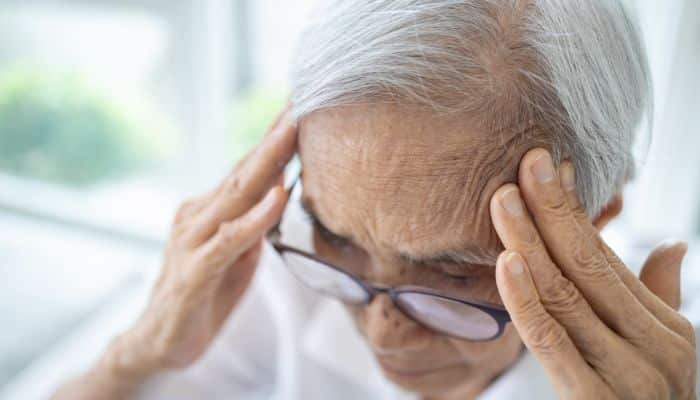Eating After Acute Ischemic Stroke: Considerations and Advice
You should never delay recovery after an acute ischemic stroke. Your best chance at repairing brain damage, improving blood oxygenation and managing future risks begins immediately.
Like most conditions, a heart-healthy diet is critical in the aftermath. What you consume promotes overall well-being and sets you up for successful healing. Here are foods you should eat and avoid after an ischemic stroke.
What Is Ischemic Stroke?
Among the three types of stroke, nearly 87% are ischemic — occurring from blocked blood vessels in the brain. When this happens, oxygen gets cut off and the cells die.
Often, people who experience ischemic strokes display the following symptoms:
- Difficulty speaking with slurred speech
- Confusion as to what others are saying
- Facial paralysis — usually a drooping mouth — or numbness on one side of the body
- Blurred or blackened vision
- Headache
- Dizziness
- Vomiting
- Poor coordination
It is crucial to call emergency services if you believe you are having a stroke. The sooner you seek medical attention, the less brain damage you’ll endure.
Stroke and Nutrition: What’s the Link?
Research shows diets high in saturated fats, cholesterol and sugar significantly affect your risk of developing stroke. In fact, over 40% of ischemic stroke patients have a history of diabetes.
Cholesterol builds up in your arteries when eaten in excess, causing them to narrow. Likewise, plaque blocks oxygen flow to the brain. People predisposed to obesity and cardiovascular conditions — such as atrial fibrillation and an enlarged heart — should be particularly careful.
Studies indicate fresh produce delivers the necessary nutrients and minerals to prevent strokes, such as vitamin C, potassium, fiber and flavonoids. For instance, increasing dietary fiber and flavonoid-rich foods combat inflammation, high cholesterol and body weight. Potassium, in particular, helps relax blood vessels, decreases excess platelets and delays vascular damage.
Eating After a Stroke: 6 Healthy Foods
Stroke and nutrition go hand in hand. After an acute ischemic stroke, you’ll want to overhaul your diet with the following six foods to promote recovery and prevent future incidences. After all, additional events could put you at greater risk of further brain damage and other severe conditions.
- Legumes and Beans
Legumes, beans, peas and soybeans are low in saturated fat and high in plant protein. They also contain elevated concentrations of amino acids, potassium, fiber and other nutrients conducive to reducing type 2 diabetes and lowering stroke risk.
Make a fresh bean salad for lunch, using olive oil and fresh herbs. Beans and legumes are also delicious in low-fat soups, eggs or dips.
- Fresh Fruits and Vegetables
Every serving of fresh produce is beneficial for stroke prevention. The more antioxidants and beta-carotene your body gets, the less damage your arteries endure. Fruits and vegetables are also highly versatile. You can enjoy them raw or over a salad. Carrot sticks, celery, sliced bell peppers and apples also make crispy afternoon snacks.
If you struggle to eat the recommended five servings of fruits and vegetables daily due to facial paralysis, add them to a smoothie. It may be easier to consume than chewing.
- Whole Grains
Whole grains — like brown rice, barley, oats, quinoa, buckwheat and corn — help lower your cholesterol levels and deliver an extra fiber boost to your diet.
When buying bread, look for “100% whole grain” on the packaging to ensure it contains all the essential bran and germ. Likewise, be open to trying whole-grain pasta instead of white flour-based products.
Popcorn is another whole grain and makes an excellent snack — just hold the butter and salt toppings to keep it healthier.
- Lean Protein
While lean protein is essential to your diet, you’ll want to eat it in moderation after an ischemic stroke. Research has indicated restricting protein intake can limit brain damage and degeneration. It also restores the gut microbiome, promoting better digestion and health overall.
Eggs, salmon and free-range chicken are good sources of lean protein. Pair it with side vegetables and brown rice for a well-rounded stroke prevention and recovery meal.
- Reduced-Fat Dairy
Drinking reduced-fat dairy milk and consuming a low to moderate amount of cheese could benefit you after acute ischemic stroke. Although studies are mixed, some researchers claim dairy intake reduces hypertension — a critical risk factor for these types of events.
However, you and your health care team should discuss whether it should be part of your post-stroke diet. Some medical professionals may suggest cutting back on dairy if you suffer from high cholesterol.
- Water
Drinking water is vital for stroke recovery, as dehydration could worsen symptoms. However, you should always take small sips to avoid choking.
Ask your doctor how much water you should drink following an ischemic stroke. They or your speech pathologist may suggest a thickener to make it safer to consume. You can also supplement some of your water intake with hydrating foods, like cucumbers, pineapple and strawberries.
What Shouldn’t You Eat After a Stroke?
Knowing what foods to avoid is just as essential as knowing what you should be eating after a stroke. The following can further damage your health and increase your risk of another stroke event:
- Processed meats, such as deli cuts
- Red meat
- Foods with added salt
- Saturated fats like butter, margarine, palm oil and cream
- Deep-fried foods and fast food
- Potato chips
- Soda, fruit drinks, sports drinks, energy drinks and alcoholic beverages
- White bread, pasta, cakes and pastries
Limiting your intake of unhealthy foods is best for controlling blood sugar and maintaining oxygen flow throughout the body.
Promote Ischemic Stroke Recovery With Diet
Your diet is an essential part of stroke recovery. Consume the most nutritious foods for heart health to lessen brain damage and decrease your risk of future stroke events.



Comments are closed.